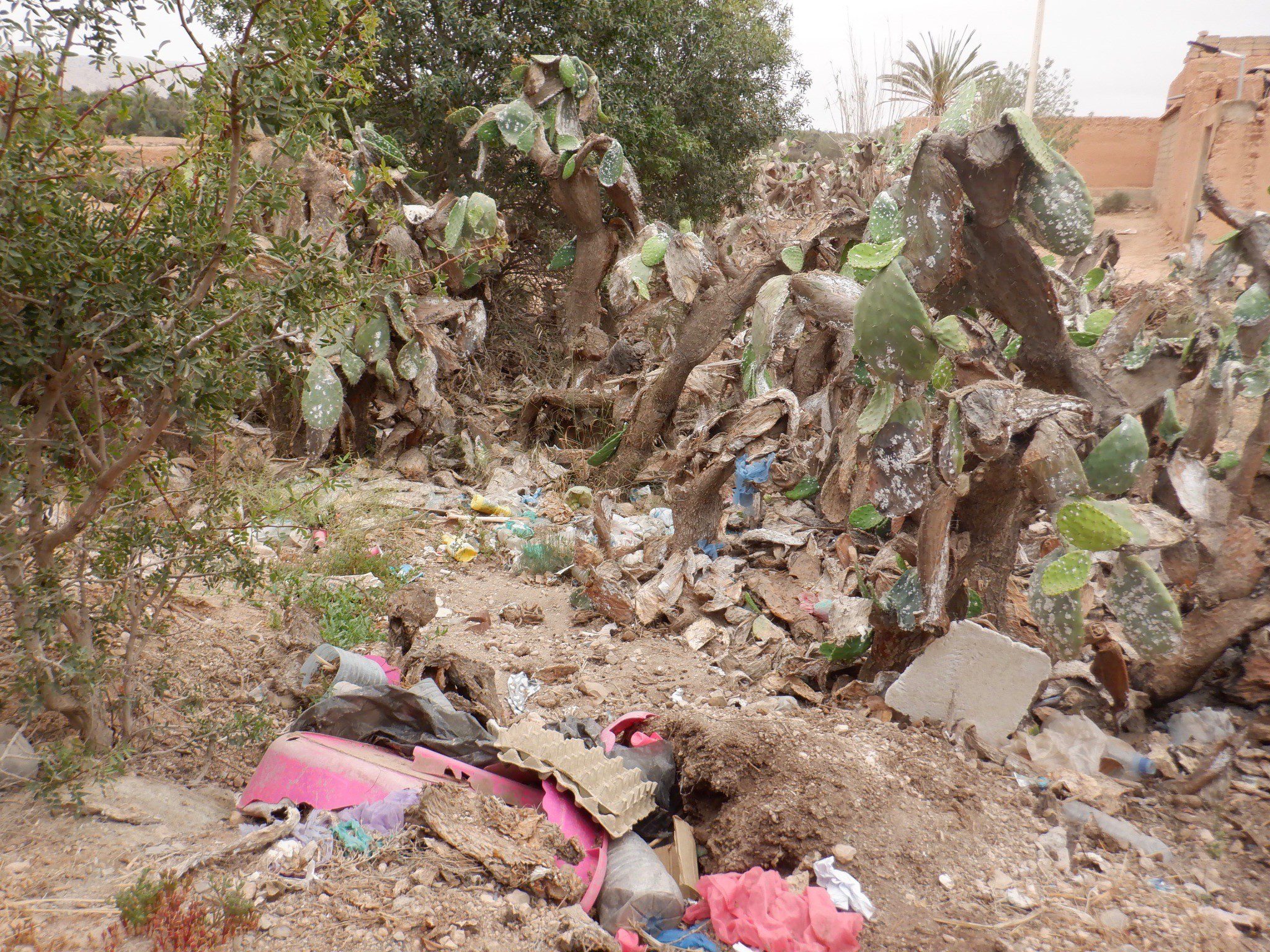Addie Simkin
HAF-UVA Intern

On Monday I made couscous. That morning, we traveled to a HAF tree planting site to learn about grafting. Abdelilah taught us that grafting is important to the carob trees he supervises because when grafting, the farmer can select for the best flavor and the trees produce fruit years faster than otherwise. We fastened male branches to female trees with strips of plastic and learned that the spot would be fully healed in a month. The tree can accept and integrate a foreign limb into itself in a matter of weeks—standing on the mountainside among farmers who had welcomed and fed us breakfast that morning, I wondered how long it would take for them to integrate me into their community if I stayed. How long would it take for our relationship to bear fruit? Certainly longer than a day.
Maybe shorter than a month. After watering and grafting the saplings, we waited for lunch. I wanted to make myself useful, so I asked Abdelilah to introduce me to the women in the kitchen. They were preparing couscous, and had already cooked it twice. Luckily for me, couscous needs to be cooked three times. I learned how to mix couscous so it doesn’t clump between cooking—all three women supervised me. I washed the dishes before we plated the meal, and helped level the couscous before we added vegetables. The process was methodical and clearly intuitive to the women, which meant that each time we miscommunicated or I made a mistake, we all laughed. I imagine that my biggest strength in that kitchen was being comfortable as the butt of the joke.
Although I did not belong in that kitchen—I would describe myself as a welcome interloper—I learned more and connected more with the women in the half-hour I spent with them than I did all morning as the farmers taught us about irrigation practices and carob trees. Perhaps I had an easier time in the kitchen, a women’s space, as a woman. I remember that one niqabi had to re-veil herself every time a man entered the kitchen, but uncovered her face when he left: I was only privileged to see her face because of my gender. One grandmother gave me a chair and hugged me while we watched the others ladle chicken onto the beds of couscous. Neither of them thought twice about these everyday intimacies, but they have stuck with me through the week.

When we finished lunch and left their village, each of them hugged me and kissed me good-bye. There was no tape to hold my branch to their tree, so I left. Throughout my time in Morocco, I have made mayfly friends: we know each other for a day or two and then we part ways forever. Even though the graft has no time to heal, I do feel nourished by the connections I have made. Given a month to grow together, I imagine that the women could teach me to integrate into their lives. I would know how to cook couscous, and my hands would stop burning when I mixed it. I would know how much water to draw from the well and how much to dedicate to washing dishes and hands. I would know how to express my gratitude to the women who taught me.
HAF’s mission of community-led sustainable development seems to work on two mutually constitutive levels: first, the Foundation works with cooperatives and communities to plant trees, empower women, dig wells, and so on. These organization-level projects are designed with the intention to improve people’s lives. But the organization-level projects, like the carob trees we irrigated on Monday morning, are only feasible because of human connections forged between individual representatives of HAF and the communities: individual, human level connections like making couscous is necessary to the broader mission of the organization. Mayfly friendships are the tape which enable HAF and local communities to join together.






